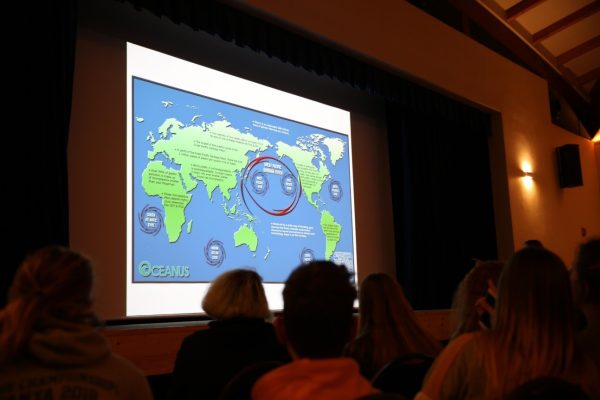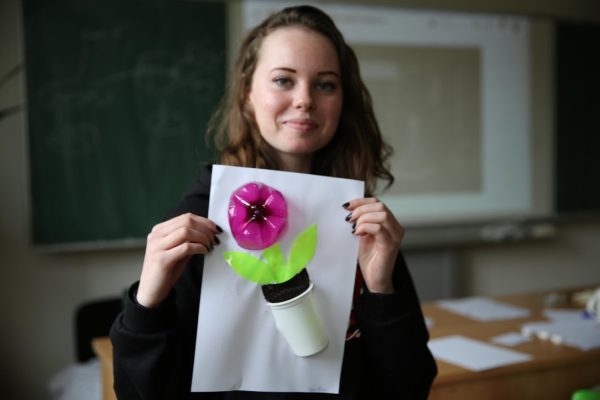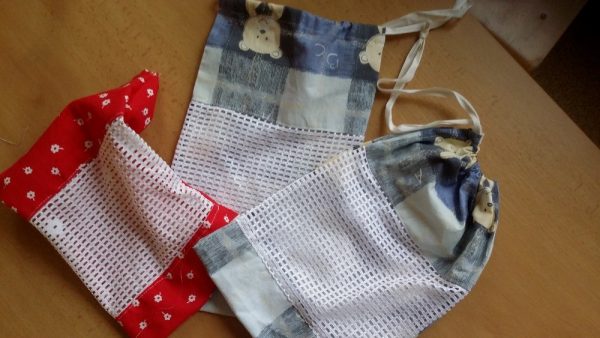3 Best-Practice Examples
Martin Bílek, CUNI
In the context of the so-called circular economy, there is talk of a hierarchy of waste management. Within this hierarchy, it is best to prevent the generation of waste altogether. The question is where waste can be saved at the outset. In the production process, we as ordinary citizens can hardly influence this, but as individuals we also have the opportunity to do something about it. For example, by ” let’s take it unwrapped! “. In this context, the following questions may be offered to the pupils: Which types of materials are used to make the packaging that becomes waste in your family? Where to get more detailed information, i.e. not only is the packaging made of paper, plastic or metal? How much packaging waste does the family, school produce in a certain period (day, week)? Is it possible to estimate, based on your own findings, the amount of packaging waste produced by, for example, your municipality (community related to your school)? Does the consumption of packaging materials depend on the way things are acquired, e.g. purchased and/or delivered?
On the basis of this initiation, several SCPs (School-Community Project) with different focuses on packaging and packaging technologies have been carried out in several schools cooperating with the Czech MOST project team (Faculty of Education Charles University and Centre of Ecological Education SEVER

Concept cloud with topic „Plastics (Plasty)” created by ninth graders

From a presentation and discussion on “Zero Waste” with “Bezobalu” company representatives. Photos: Karolína Bednářová
The first example is the “Without packaging” project day carried out in a elementary school by ninth graders. The pupils, initiated by their teacher, carried out a set of activities including experimental activities on the topic of plastics, created mind maps and concept clouds from their findings, and consulted their findings with representatives of company “Bezobalu” in the framework of their lecture “Zero Waste”. The final part of the project day was workshops on plastic packaging artefacts and bags, where interesting products were created from waste packaging materials as well as decorated linen bags for multi-purpose use.
Another example is a primary school SCP focused on creating linen bags for food storage in the home. After a discussion with the teacher and parent representatives about where plastic disposable packaging – “plastic bags” – are used, the pupils found out the facts about their use, and especially overuse, in school and at home. They looked for solutions and, in consultation with experts and practitioners, designed reusable textile “bags”. This provided an interesting addition to the workshop at school where, with the help of a professional seamstress and several parents who provided the relevant equipment, they created interesting and useful products. A related effect was creativity and design in addition to utility. The results of the pupils’ efforts have been prepared as an offering for the school garden party.

Artefact from waste packaging materials. Photos: Karolína Bednářová

SCP products on Packaging. Photo: Lenka Kociánová
A third example is the SCP of another primary school, oriented to the amount of packaging that is produced by families. The pupils, in consultation with experts, prepared leaflets for those interested in information on reducing packaging waste. In collaboration with the city representatives, they prepared and implemented a campaign on packaging materials, their overuse, etc.

Authentic outputs of the project day “Without packaging” – “personalized” linen bags. Photo: Karolína Bednářová
